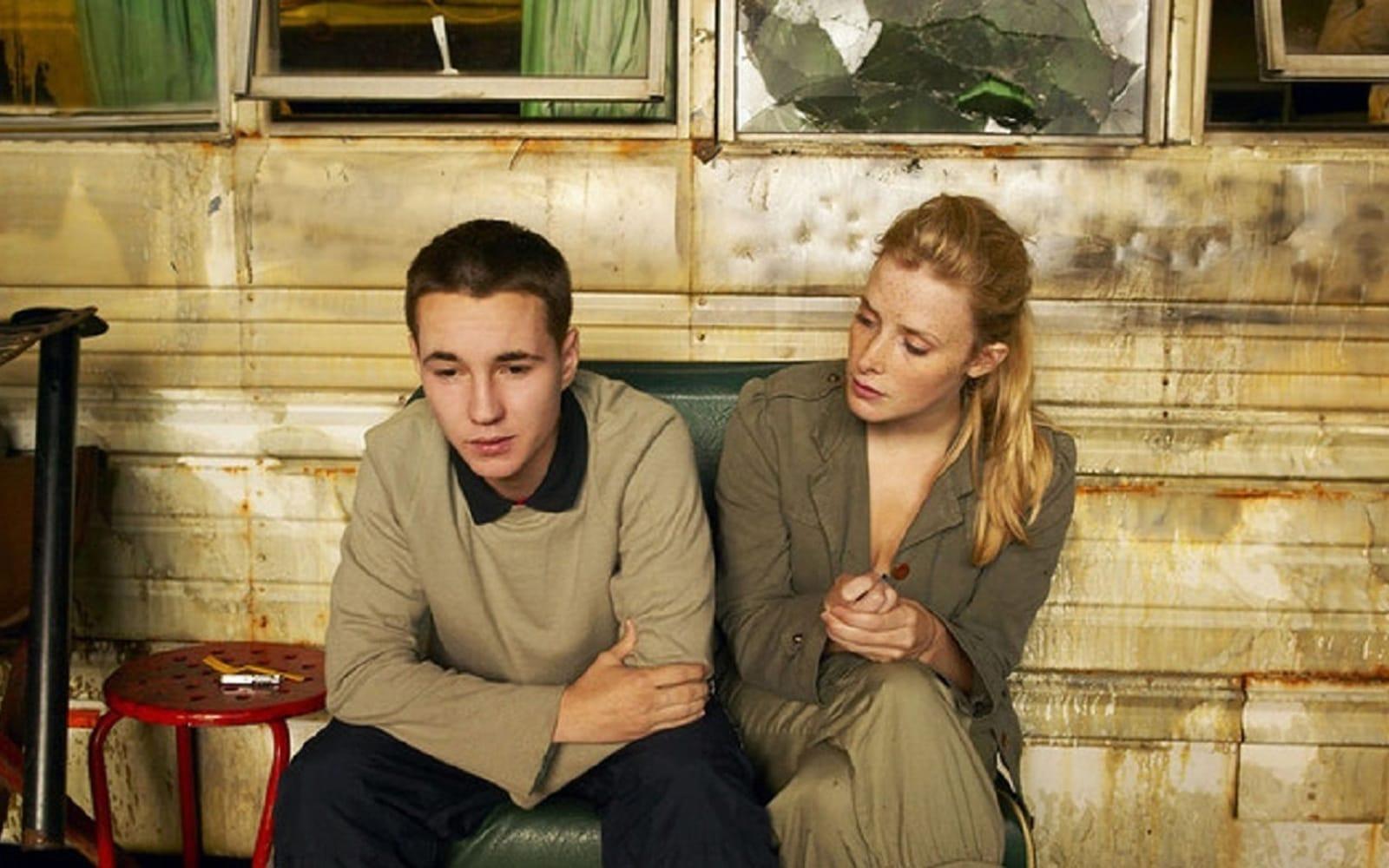Niceland by Friðrik Þór Friðriksson (Review)

I was lamenting to some people earlier that, due to my constant running around to theatres and whatnot, I had yet to have a real “line experience”. You know, where you strike up a conversation with someone, start sharing films, etc. Well, I had my first line experience of the festival last night, while standing in the rush line for Friðrik Þór Friðriksson’s Niceland. While talking to some acquaintances, a man came up to me out of nowhere and asked if I wanted a ticket to Niceland, and for only $10. Before the other people in line could react, I whipped out the billfold and — Score! — snagged my ticket (checking to make sure it was the right screening and that I wasn’t getting ripped off).
In hindsight, I’m glad I didn’t pay full price, because the only way to label Niceland is a disappointment. The film is a very, very sappy and sentimental tale about a young man named Jed trying to find the purpose of life so that he can save his fiance Chloe, who has slipped into a deep depression following the death of her beloved cat. This is a film that so desperately wants you to find it meaningful that it practically begs you. And when that doesn’t work, it becomes so earnest that you feel practically manipulated.
The film’s main characters — Jed, Chloe, and their co-workers (some of whom are mentally handicapped) — are clearly meant to be innocent outsiders while everyone else in the film — Jed’s parents, the junkyard guru that Jed moves in with to learn the purpose of life — are meant to represent the cynicism and corruption of the world. But it’s so obvious, and so heavy-handed that my cynicism was almost always overdrive.
The weak script, which feels like a mish-mash of Hallmark cards and Chicken Soup For the Soul-esque platitudes, heightens this problem. It tries hard for depth, but anytime it tries to give the characters some Big Emotional Thing to do or say, it always rings false. As such, the climax, when Jed figures out the meaning of life, feels incredibly empty and banal.
I was also disappointed to see (or hear, as the case may be) that Friðriksson’s long-time composer Hilmar Örn Hilmarsson hadn’t contributed the score. Instead, Friðriksson went with an Icelandic artist named Mugison, whose conventional songs and music were, well, pretty conventional. Hilmarsson’s music lent so much to Friðriksson’s previous movies, such as 1991’s haunting Children of Nature (one of the most beautiful films I’ve ever seen, and not a subtle film itself either), that Niceland would have definitely benefited from any involvement of his.
If I sound a bit harsh on the film, it’s only because I expected so much more from Friðriksson. Children of Nature remains of my favorite films, and is certainly one of the most beautiful and haunting films I’ve ever seen. There’s one scene when Jed and Chloe go to the movies, and though we can’t see what they’re watching, it’s obvious from the soundtrack that it’s Children of Nature. Afterwards, they comment that it was the best film they’d ever seen. I couldn’t help but smile at that comment, but only halfheartedly because even that brief glimpse of Friðriksson’s previous film served only to accentuate how far Niceland was from even comparing to his other work.
This entry was originally published on ScreenAnarchy on .